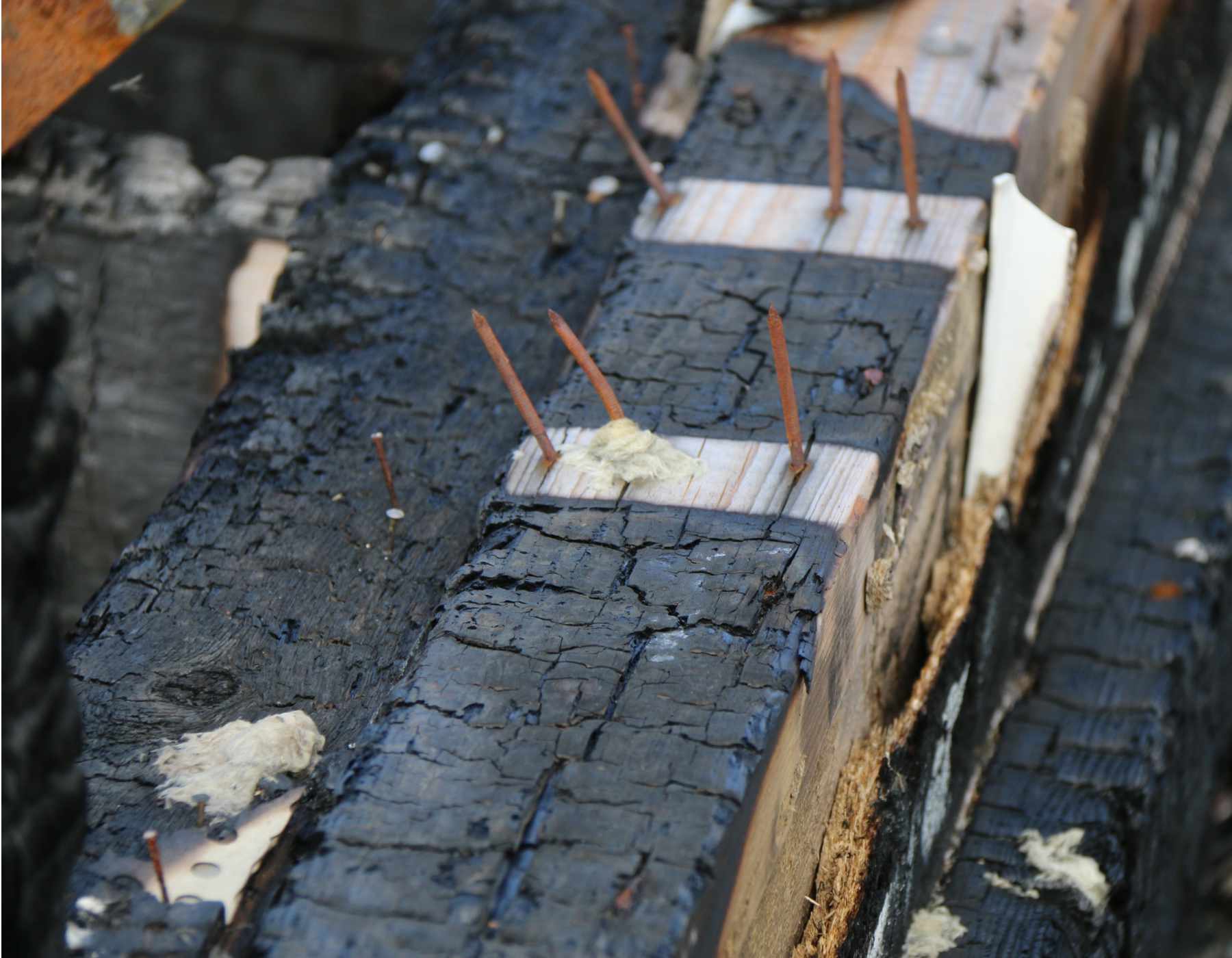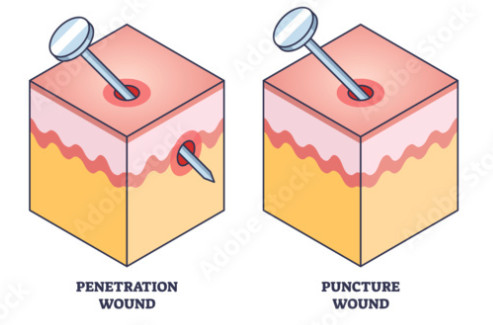ChatRx uses advanced AI to accurately diagnose the symptoms of puncture wounds prescribe medications when necessary.
**Not for emergency use. Care is provided with physician oversight. AI assists clinical workflow only. For concerning or urgent symptoms, call 911.

Puncture wounds are a type of injury caused by a sharp, pointed object penetrating the skin. These types of wounds can be particularly concerning, as they may not bleed extensively but can still lead to serious infections if not properly treated. Prompt medical attention and appropriate care are crucial to prevent complications and promote healing.
Puncture wounds are painful and can get infected if not treated. We encourage you to use our system to assess your symptoms.
The ChatRx Free Symptom Checker is Available!
What are Puncture Wounds?
- Injuries caused by a sharp, pointed object penetrating the skin
- May not bleed extensively, but can still lead to serious infections if not properly treated
- Require prompt medical attention and appropriate care to prevent complications
Causes of Puncture Wounds
- Stepping on a nail, shard of glass, or other sharp object
- Accidental stabbings or punctures from tools, nails, or other sharp implements
- Animal bites, particularly from dogs or cats, which can introduce harmful bacteria
Preventing Puncture Wounds
- Wear appropriate footwear and be cautious when walking in areas that may contain sharp objects
- Properly store and handle sharp tools and implements to avoid accidental punctures
- Avoid approaching or provoking unfamiliar animals that may bite
Symptoms of Infected Puncture Wounds
- Redness, swelling, and pain at the wound site
- Fever, chills, and other signs of systemic infection
- Pus or fluid drainage from the wound
- Increased warmth and tenderness around the affected area
- Potentially, more severe complications like cellulitis or osteomyelitis
Treating Puncture Wounds
- Immediate cleaning and flushing of the wound with soap and water
- Application of an antibiotic ointment to help prevent infection
- Tetanus vaccination or booster shot, if needed
- Prescription-strength oral antibiotics, as directed by a healthcare provider
- In some cases, hospitalization and intravenous (IV) antibiotics may be required
Self-Care for Puncture Wounds
- Thoroughly clean the wound with soap and water as soon as possible
- Apply a clean, dry dressing to the affected area
- Monitor the wound for signs of infection, such as increased redness, swelling, or fever
- Take any prescribed antibiotics as directed and follow up with a healthcare provider
Antibiotics for Puncture Wounds
- Prescription-strength oral antibiotics, such as amoxicillin-clavulanate or cephalexin, may be prescribed to help fight the bacterial infections that can occur

Risk Factors for Complications from Puncture Wounds
- Wounds that penetrate deeply into the skin or affect sensitive areas
- Chronic lung diseases like COPD or asthma
- Weakened immune system due to underlying medical conditions or medications
- Delayed or inadequate treatment of the initial wound
- Exposure to contaminated objects or environments
Puncture wounds can quickly lead to serious infections if not properly cared for. By recognizing the signs of infection, seeking prompt medical attention, and following proper self-care guidelines, individuals can minimize the risk of complications and promote the healing of these types of injuries.
Unlike cuts, most puncture wounds don’t require stitches as they’re typically narrow and deep rather than wide. However, deep wounds need professional evaluation.
Numbness could indicate nerve involvement or pressure from swelling. Any loss of sensation should be professionally evaluated.
Need a quick wound assessment? Let ChatRx’s AI medical platform evaluate your symptoms.
Grinding sensations, difficulty moving the affected area, or unusually sharp pain could indicate bone or joint involvement. These require immediate medical attention.
Surface punctures typically heal within 2-3 days. Deeper wounds may take 1-2 weeks. Any wound taking longer needs evaluation.
Worried about slow healing? Let ChatRx’s AI system assess your wound’s progress.
Medical experts now discourage using hydrogen peroxide as it can damage healthy tissue and slow healing. Use plain soap and water instead.
Shoes create warm, dark environments ideal for bacteria growth. Plus, deeper foot punctures can damage complex bone and tissue structures.
Recovery timing depends on wound location and depth. Most surface punctures allow normal activity within days, while deeper wounds may require weeks of limited activity.
Clean the area immediately and apply new dressing. Reopening can indicate incomplete healing or too much strain on the wound site.
